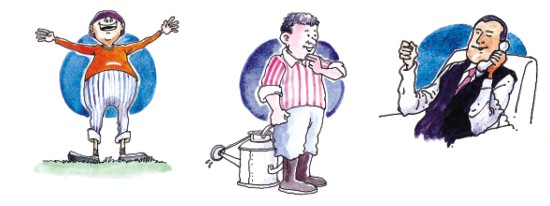| Learners' Club
Saying how happy you are
 How can you ask someone to do something for you in English without sounding rude? Here are some of the ways that you can give orders and instructions. How can you ask someone to do something for you in English without sounding rude? Here are some of the ways that you can give orders and instructions.
Here are some of the ways you can express your happiness in English.
You can be…
- (absolutely) delighted
- thrilled to bits
- over the moon
- really pleased
- so happy
Or you can say…
- I couldn't be happier.
- That is fantastic / wonderful / great /
marvellous!
When you hear good news you can say:
- What great / wonderful / fantastic news!
- We've been waiting so long for this (moment).
- Thank God! / Thank God for that!
(British English speakers tend not to be particularly religious)
Pronunciation tip
Stress the adverbs and adjectives for greater emphasis:
I'm really pleased.
- What great news!
Speaking about hopes in English
Hopes
I'm hoping for (noun) ("I'm hoping for a new cell phone.")
I'm hoping to get… ("I'm hoping to get a new phone.")
I would like…
I really want… (Using "want" can be impolite unless you are talking to a close friend or family member.)
Something I've always wanted is…
I'd be delighted / over the moon if… ("I'd be delighted if you gave me a new watch.")
What I'd like more than anything else is…
On my Christmas wish list is…
Preferences
I'd rather have (noun) ("I'd rather have tickets to the opera.")
I'd rather you (simple past) ("I'd rather you saved your money.")
I'd prefer (noun) ("I'd prefer some money for the new house.")
I'd prefer it if you (simple past) ("I'd prefer it if you gave some money to charity.")

….. would be more suitable / would be better
If I had a choice, I would go for…
If it's all the same to you, …. ("If it's all the same to you, I'd like some book tokens.")
Copyright
(R) thedailystar.net 2009
|

 H
H